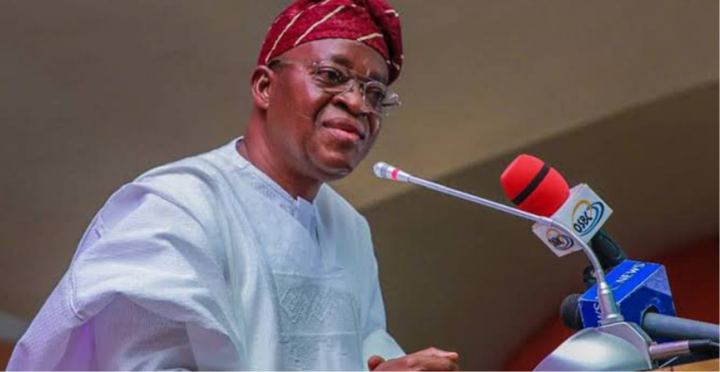Nigeria is intensifying its campaign to secure a seat on the International Maritime Organisation (IMO) Council, leveraging its remarkable zero-piracy record and recent policy reforms aimed at expanding the country’s blue-economy potential. Government officials, maritime regulators and industry stakeholders say the country’s renewed push reflects its determination to take on a greater leadership role in shaping global maritime safety, security and sustainability policies.
The bid comes at a time when Nigeria has recorded one of the most significant improvements in maritime security in its history, following years of persistent piracy and armed robbery along the Gulf of Guinea. For more than two years, international maritime bodies have acknowledged Nigeria’s success in achieving and maintaining a zero-piracy rate, a development that drastically improved ship traffic, crew safety and investor confidence. The Nigerian Maritime Administration and Safety Agency (NIMASA), working closely with the Navy, Air Force, other security agencies and regional partners, has consistently highlighted this milestone as evidence of the country’s commitment to global maritime standards.

Officials involved in the IMO campaign argue that Nigeria’s security turnaround demonstrates its capacity to contribute meaningfully to the council’s agenda. They note that the achievement was not accidental but the outcome of sustained investments in maritime domain awareness technology, coordinated patrols, inter-agency collaboration and legal reforms supporting the prosecution of maritime criminals. The Deep Blue Project, drones, surveillance aircraft and dedicated naval assets were central to this transformation, allowing authorities to deter threats before they escalated into attacks. This record, they say, positions Nigeria as a dependable partner in international efforts to ensure safer global waters.
Beyond maritime security, Nigeria is also showcasing a wave of blue-economy reforms implemented over the past year. The creation of the Federal Ministry of Marine and Blue Economy marked a major shift in the country’s strategy, signalling a deeper focus on unlocking economic opportunities in shipping, fisheries, coastal tourism, port efficiency, ocean energy, and marine environmental management. These reforms align with global priorities laid out by the IMO, which encourages member states to take full advantage of sustainable ocean resources while balancing environmental protection.
Government representatives have emphasised that Nigeria’s blue-economy agenda is designed to deepen job creation, enhance revenue diversification, improve port competitiveness and expand Nigeria’s role in international trade. Several infrastructure projects—including modernisation of ports, expansion of ship-repair capacity, adoption of digital cargo-tracking systems and ongoing work on inland dry ports—have been highlighted as examples of Nigeria’s commitment to strengthening its maritime sector.
In addition, Nigeria has continued to champion regional partnerships through initiatives such as the Yaoundé Architecture, which sets up a collaborative framework for maritime security across West and Central Africa. Officials note that Nigeria’s leadership in the Gulf of Guinea has already made it a reference point for regional safety protocols, capacity-building, and information sharing. The country believes that broader representation within the IMO Council will further support Africa’s voice in global maritime governance.
Stakeholders across the sector—including shipowners, port operators, freight forwarders, and logistics associations—have publicly declared support for the IMO bid. Many argue that Nigeria’s maritime industry, which serves as a gateway for over 70 percent of West Africa’s trade, deserves a stronger position in global decision-making structures. They emphasise that maritime policies adopted at the IMO have immediate and long-term implications for developing economies, and Nigeria’s presence on the council would ensure that Africa’s concerns and perspectives are adequately represented.
Maritime experts also stress that Nigeria’s progress has contributed significantly to the reduction of global maritime risk premiums. With piracy attacks in the Gulf of Guinea declining to record lows, shipping companies operating in the region have experienced lower insurance costs, reduced operational disruptions and improved crew welfare. Experts believe this achievement illustrates the broader economic value of Nigeria’s security investments and further strengthens its credibility before the IMO.
In diplomatic engagements leading up to the IMO election, Nigeria has highlighted its intention to support reforms that improve environmental protection, promote decarbonisation, strengthen regulation of ship emissions, and advance greener technologies for maritime transport. Officials say the country aims to play a more active role in shaping strategies around climate transition, especially as maritime emissions come under greater scrutiny worldwide.
Furthermore, the government has argued that Nigeria’s youthful population and expanding maritime workforce present opportunities for global capacity-building collaboration. Training institutions such as the Maritime Academy of Nigeria, alongside emerging private maritime institutes, continue to expand skill development programmes that align with international standards. Nigeria believes its growing pool of maritime professionals could support the IMO’s broader goals of improving safety, professionalism, and compliance across member states.
As the IMO Council election approaches, Nigeria’s campaign continues to gather momentum through international engagements, diplomatic visits and strategic partnerships. Officials remain optimistic, noting that the country’s track record over the past three years—combined with its forward-looking blue-economy reforms—represents strong justification for a place on the council.
Ultimately, Nigeria’s bid reflects its ambition to not only secure a seat but to help drive global maritime progress. With strengthened security, renewed economic priorities and a commitment to sustainable ocean governance, the country is positioning itself as a responsible maritime nation ready to contribute significantly to international maritime policy and development.
Support InfoStride News' Credible Journalism: Only credible journalism can guarantee a fair, accountable and transparent society, including democracy and government. It involves a lot of efforts and money. We need your support. Click here to Donate
